ICBMM 2025 Speakers
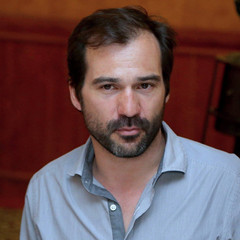 |
Nuno Dinis CortiçosUniversity of Lisbon, PortugalNuno Dinis Cortiços is Professor and Chair on Building's Energy Certification at the Department of Technologies in Architecture, Urbanism and Design at Faculdade de Arquitectura, Universidade de Lisboa; Ph.D in Building Science and active member in Research Centre for Architecture, Urbanism and Design (CIAUD) associated to Fundação para a Ciência e Tecnologia (FCT). As Researcher focuses on building’s renovation, autonomous maintenance systems, sensor and nano-technology applied to maintenance, building’s performance and renovation's simulations on buildings stock, and maintenance accuracy applied to Unesco heritage; presenting and publishing the outcomes, mainly, at Scopus Conferences and Elsevier Journals. Board technical member at “Building and Environmental”; Architectural Research Centers Consortium, Inc (ARCC); and, European Association for Architectural Education (EAAE). Other accomplishments, Vice-President of the Faculty’s Board, responsible for Financial Management and Maintenance; Building Supervisor on quality and warranty; and Team Leader on architecture designs; and, Judicial Technical Consultant on construction quality. |
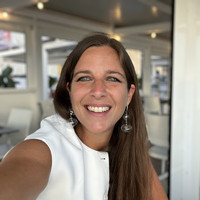 |
Marta CalzolariUniversity of Ferrara, ItalyMarta Calzolari is Associate Professor at the
Department of Architecture of the University of Ferrara. From
2021 to 2024 she was Assistant Professor at the Department of
Architecture of the University of Ferrara. From 2019 to 2021 she
was Assistant Professor at the Department of Engineering and
Architecture of the University of Parma. Since 2009 at the
Department of Architecture of the University of Ferrara she is a
member of the Architettura>Energia Research Centre, a research
hub working on building sustainability where she participates at
the research’s activities and at the coordination. |
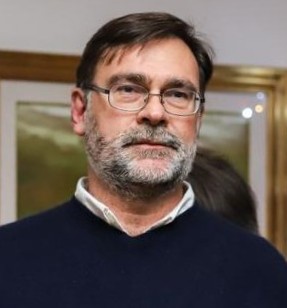 |
Claudio FeroneUniversity of Naples "Parthenope", ItalyClaudio Ferone received the master’s (cum
laude) degree in Chemical Engineering from the University of
Naples Federico II, Italy, in 1995 and the Ph.D degree from the
University of Naples Federico II, Italy, in 1998. He is
currently associate professor in Chemical Foundations of
Technology at the Engineering Department of the University of
Naples "Parthenope". |
Previous Speakers
 |
Prof. Dr. Diogo RibeiroPolytechnic of Porto, PortugalDiogo Ribeiro is Adjunct Professor at Polytechnic of Porto – School of Engineering (ISEP-IPP) and holds a Bachelor in Civil Engineering (2002), a Master in Structural Engineering (2005) and a PhD in Civil Engineering (2012), all from the University of Porto. He is Director of the Bachelor course in Civil Engineering of ISEP (since 2014) and Director of the Postgraduate Programs in BIM Coordination (since 2019) and Prefabrication in Concrete (since 2020). He is a regular invited teacher on Civil Engineering master and postgraduate courses on University of São Paulo (Brazil) and Federal University of Ouro Preto (Brazil). He is also specialist in Metrology by the Portuguese Order of Chartered Engineers (2018) and Integrated Member of the Institute of R&D in Structures and Construction (CONSTRUCT). His main research interests are related to remote inspection, computer vision, artificial intelligence, automatic calculation of structures, Building Information Modeling (BIM), digital construction, digital railways, railway infrastructures, structural testing and experimentation, model updating and validation, and damage identification. Diogo Ribeiro was coordinator or researcher in more than 20 R&D projects funded by the industry, FCT and EU programs in the field of railway infrastructures and digital construction. Recently, he was co-Editor of the Springer Books "Industry 4.0 for the Built Environment Methodologies, Technologies and Skills" and "Structural Health Monitoring Based on Data Science Techniques”, as well as main Editor of the Springer Book Series “Digital Innovations in Architecture, Engineering and Construction”. He was visiting researcher at Bauhaus Universität Weimar (Germany) and University California San Diego (UCSD) and was awarded with a Fulbright Grant for doctoral researchers/teachers by Fundação Luso-Americana and FCT (2016). |
 |
Prof. Dr. Daniel V. OliveiraUniversity of Minho, PortugalDaniel V. Oliveira, Portuguese, has a
Bachelor degree (5-years duration, 1993) and a Master degree
(2-years duration, 1996) in Civil Engineering by University of
Porto, and a PhD Degree (2003) in Civil Engineering by
University of Minho. Currently, he is Associate Professor at the
Department of Civil Engineering of University of Minho. |
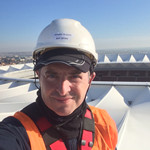 |
Javier Tejera ParraUniversidad Politécnica de Madrid, SpainJavier Tejera Parra (1971) is an
architect specialised in light construction and Textile
Architecture. Associate Professor at the School of Architecture
in Madrid (ETSAM), he teaches Textile Architecture, 4th year
construction and tutorships of Master final projects. |
 |
Rudolf HelaBrno University of Technology, Czech RepublicRudolf Hela have been working as a professor at the Faculty of Civil Engineering, Technical University Brno, Czech Republic since 1985. His professional focus is concrete technology, prefabrication of concrete building components and their use, 3D printing of precast concrete and monolithic structures, recycling of concrete and brick demolition waste and reuse as a substitute for natural aggregates, development of self-compacting and high-strength concretes. |
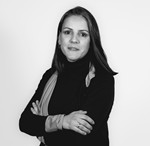 |
Rocío Sancho AlambillagaUniversity of Design, Innovation, and Technology of Madrid, SpainHead of the Department of Interior and
Product Design, and Director of the Bachelor's Degree in
Interior Design at UDIT, University of Design, Innovation and
Technology of Madrid. PhD from San Pablo CEU University,
Building Engineer, and Interior Designer. Recipient of the Ángel
Herrera Award for the best academic record in 2008-09 at the
Higher Polytechnic School of CEU San Pablo University in Madrid.
Since 2004, she has been involved in teaching and research,
alongside professional work in spatial design and technical
supervision of renovation and refurbishment projects. |
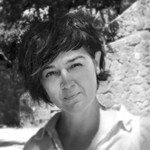 |
Nadia VasilevaUniversity of Design, Innovation, and Technology of Madrid, SpainArchitect from the School of Architecture of
Madrid (ETSAM/UPM, 2009), with a Master’s degree (2011) and a
PhD (2017) in Advanced Architectural Projects from the same
school. Recipient of the Extraordinary Doctorate Prize in 2019.
Visiting researcher at Waseda University, Tokyo between 2012 and
2014. Combines her work as an architect with teaching, research,
and specialized translation. Currently, coordinator of the
Master's Program in Interior Design at the University of Design,
Innovation, and Technology of Madrid (UDIT), a lecturer in both
undergraduate and master's programs at the same university, and
a collaborating lecturer in the activities of the EELISA CRC
community at the Polytechnic University of Madrid. |
 |
Prof. Dr. Clara Pimenta do ValeUniversity of Porto, PortugalClara Pimenta do Vale (1967) is an Architect
from the University of Porto (1991) who specialised in building
physics and Portuguese 20th-century construction history. She
holds an MSc in Building Construction from the Faculty of
Engineering (1999) and a PhD in Architecture (2012). |
 |
Prof. Dr. Aires CamoesUniversity of Minho, PortugalDr. Aires Camoes, associate professor of the Department of Civil Engineering of Minho University and Director of Materials of Construction Laboratory. His research interests include eco-efficient construction materials, namely eco-efficient concrete, earth construction, mineral admixtures for cementitious materials, high performance concrete and durability of concrete structures. |
© 2026 10th International Conference on Building Materials and Materials Engineering .